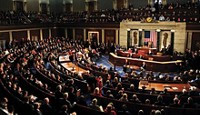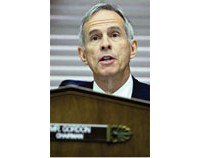Advertisement
Grab your lab coat. Let's get started
Welcome!
Welcome!
Create an account below to get 6 C&EN articles per month, receive newsletters and more - all free.
It seems this is your first time logging in online. Please enter the following information to continue.
As an ACS member you automatically get access to this site. All we need is few more details to create your reading experience.
Not you? Sign in with a different account.
Not you? Sign in with a different account.
ERROR 1
ERROR 1
ERROR 2
ERROR 2
ERROR 2
ERROR 2
ERROR 2
Password and Confirm password must match.
If you have an ACS member number, please enter it here so we can link this account to your membership. (optional)
ERROR 2
ACS values your privacy. By submitting your information, you are gaining access to C&EN and subscribing to our weekly newsletter. We use the information you provide to make your reading experience better, and we will never sell your data to third party members.
Environment
Science In The Domestic Agenda
Science is central to U.S. economic recovery and future, House Speaker says
by Rochelle F. H. Bohaty
March 30, 2009
| A version of this story appeared in
Volume 87, Issue 13

SCIENCE WILL BE the cornerstone of a wide array of future government policies, House Speaker Nancy Pelosi (D-Calif.) promised at a meeting last week with academic and business leaders.
"If you want to know our domestic agenda, it is science, science, science, and science," Pelosi said. This focus on science is demonstrated in the amount of money in the American Recovery & Reinvestment Act and the fiscal 2009 federal budget for key scientific agencies (C&EN, Feb. 16, page 7, and March 2, page 10).
Pelosi, along with Rep. Bart Gordon (D-Tenn.), chairman of the House Science & Technology Committee, received a thank you from the academic and business representatives at the meeting for recent scientific funding gains in the economic stimulus package.
"Support for scientific research and education is critical to our economic recovery and our future as a nation," said C. D. (Dan) Mote Jr., president of the University of Maryland, College Park. "Innovation will come from highly educated people who will discover and apply new knowledge to our critical problems," he added.
Pelosi and Gordon said that they support future funding for science as a driver for economic growth, but also that they value the role of science in other policy areas. For example, Gordon noted that his committee is focusing on science-related issues including energy and water resources.
In a discussion after the initial meeting, Gordon elaborated on his committee's activities, such as the hearing it held on the role of science in foreign policy. The scientific and technology leaders were supportive of these efforts but underscored the need for continued long-term support of key science agencies to avoid a boom-and-bust scenario.
Gordon acknowledged this concern and said Congress is working diligently on the issue. "The 2009 appropriation was almost a perfect follow-on to the recovery act," he noted. As Congress begins its work on the fiscal 2010 budget, he added, it is essential to have continued public support.
For this reason, Gordon encouraged those in attendance to "go back home and explain to the public why we need these investments" to ensure long-term sustained growth in science funding.




Join the conversation
Contact the reporter
Submit a Letter to the Editor for publication
Engage with us on Twitter